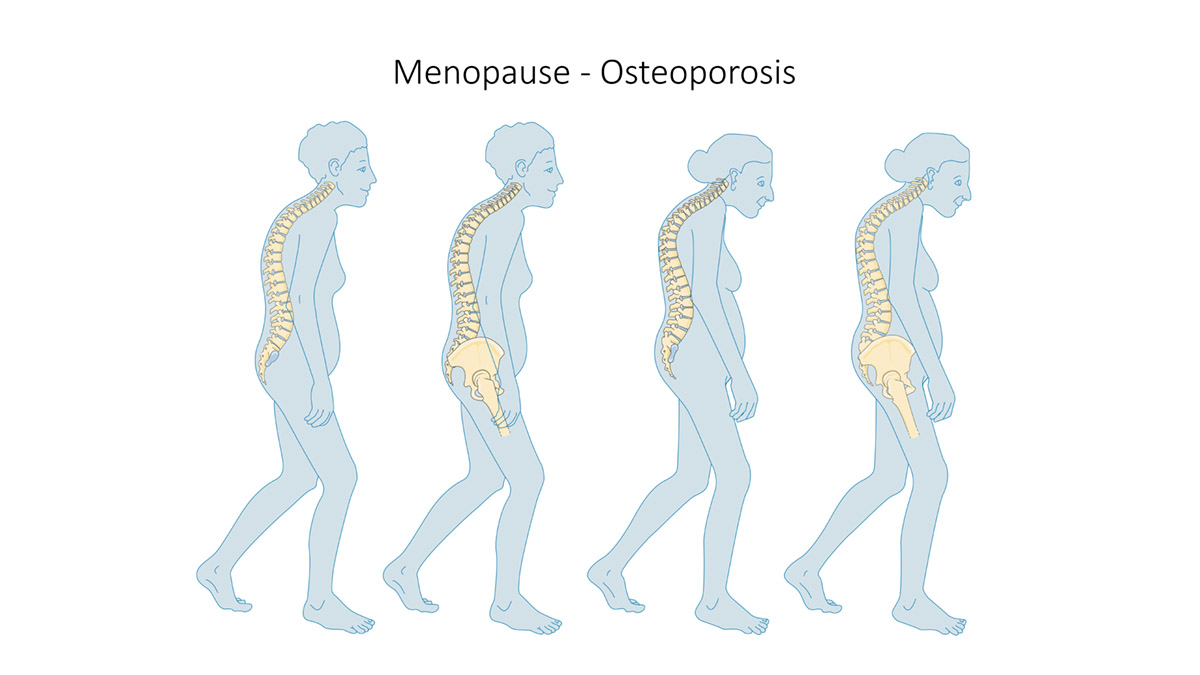
Menopause is a condition in a woman's life when the ovaries cease to release eggs or reduce the production of female hormones, estrogen. Typically, menopause starts at about 50 years of age. When menopause occurs before 40 it is then defined as premature menopause. Due to some illness, medical operations or genetic predispositions women enter menopause earlier than normal.
Menopause is characterized by changes in the mood, sudden hot flashes, flushing and increased sweating. Women undergoing menopause have irregular menstrual cycles, occasional and through time rare, bleeding may be minimal or excessive. Sensation of sudden warmth all over the body is assossiated with hormone fluctuations. As estrogen decreases, vagina becomes less elastic, thin and dry and as a consequence sexual intercourse becomes unpleasant and painful.
Menopause is accompanied by urinary incontinence, inability to control bladder and leakage of urine. A woman often has the urgent need to urinate but does not urinate or urinates involuntarily. Emotional instability causes the women to be more irritable, moody and prone to depression, anxiety and to rapid shifts from good to bad mood. Due to the hormone changes a woman does not have a strong sexual urge or has no urge at all. Lack of estrogen may also disrupt sleep and cause skin problems, dryness of eyes and mouth. Premature menopause has all of these symptoms.
Premature menopause is attributable to some illnesses, such as cancers. Such illnesses entail medical procedures and treatment that can have impact on female hormones.
Chemotherapy or radiation affects female organs and hormones. Genetic predispositions are considered to be one of reasons for premature menopause. If anyone in a woman's family has experienced premature menopause that woman is very likely to experience it too. If anyone in the family has some kind of an autoimmune disorder, such as hypothyroidism, when the thyroid gland insufficiently produce hormones, or when it produces the hormones excessively, medically called Graves' disease, the woman will probably go through menopause earlier. An inability to get pregnant despite the numerous times of trying can also cause such a state.
If a woman suspects of premature menopause, she consults a doctor who then carries out a number of medical test, especially blood tests. Thyroid glands and the level of estrogen, especially estradiol are subjected to control. If the level of estradiol is below 36 then woman has entered premature menopause. Follicle stimulating hormone (FSH) tests are the most important in diagnosing menopause. As the function of ovaries decreases the FSH level increases (if above 30 or 40 mIU/mL). Follicle stimulating hormones are responsible for producing estrogens.
Menopause, normal or premature, increases the risk of developing ovarian or colon cancers. Women suffer from osteoporosis, loss of teeth and paradentosis. Premature menopause creates a higher risk of being affected with any of these health conditions. Premature menopause treatment requires the same methods as normal menopause treatment. The only difference being the fact that these women need to consult specialists for reproduction since infertility can be the result of premature menopause.















-During-Pregnancy_f_280x120.jpg)

Your thoughts on this
Loading...